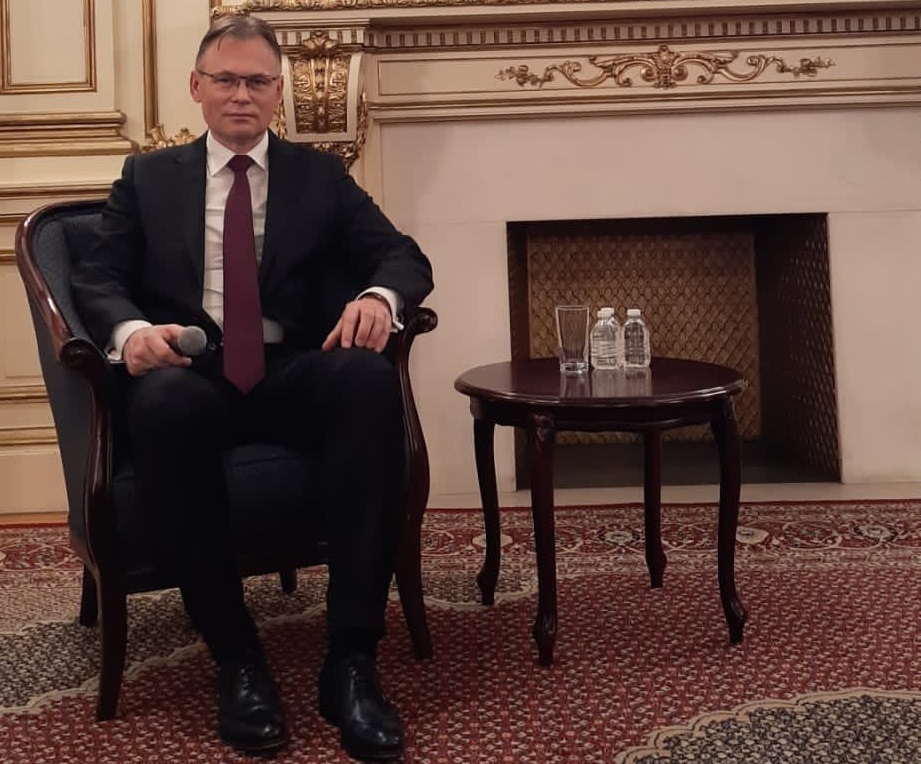
The “Compact Geschichte” media launched a revisionist campaign against Poland. A series of articles has been published, the authors of which accuse Poland of, among others, World War II, make Poles executioners, claim – contrary to the facts – that there were Polish concentration camps for Germans. This is the same rhetoric that we have been dealing with since the 1970s in certain circles in Germany, and now we can observe its intense intensity. What do you think could be the main reason for this?
Arkadiusz Mularczyk: I want to emphasize that our embassy will send a letter to this agency or newspaper, in which we demand that this type of publication be discontinued due to the fact that they are simply untrue. If they continue to appear, we will take legal action. This is the decision of our facility in Germany. However, it should be emphasized that the Germans try to change history in various ways, not entirely in line with reality, or turn it upside down. This is all part of the game that is going on with our reparations claims.
Is it only related to reparations? Why are they attacking Poland right now? Could it also be related to Polish aid for Ukraine?
It is difficult to predict here what the motivations of these people are. However, there is a purpose to spreading this false information. I think, however, that it is largely related to the fact that Poland raises the problem of compensation and reparations on the international arena.
Why is it so difficult for Germany to pay Poland its due reparations?
This is of course a good question. I think that the Germans do not treat Poland or Poles in a partnership way. This is the basic thing. For years, they corrupted the scientific and political elites and did not have to take Poland seriously. It was enough that they funded scholarships for historians, lawyers, politicians, awarded some grants, and that was enough to have influence. This is not enough for them today. In connection with the above, they make various attempts, which in our opinion are certain provocations.
The AfD is divided over the articles in the “Compact Geschichte”. Some of its politicians share this narrative, while others take the exact opposite position. What does this mean?
The AfD is a party like the Confederation, where there are different, completely contradictory views, where is Braun and where is Bosak. I know that many parliamentarians from this formation dissociate themselves from this publication, claiming that it is not an AfD annex, nor is this website associated with the AfD. Germany is a big country, 80 million people, and there are definitely different voices there. This is also due to a certain lack of knowledge about history. This proves that the Germans believed in their own propaganda, which they created over the years. This does not change the fact that Poland must consistently raise historical issues in various international circles. Above all, education matters. Informing about history is the key today from the point of view of our country. We have to present our history in very different international forums, also in Germany. This task is ahead of us.
The question is how to persuade the German side to present the history as it was in a coherent way?
I think that this is also part of the political game in Germany, where the communities are different. However, we definitely need to educate the German public. We also want to launch an information campaign in Germany in the coming weeks and months. In the coming months, we want to present this report in Germany in German. I think it will also largely open up a discussion about the true aspects of history, and not the deceitful ones.
When exactly will this report be released in German?
I think that at the end of February this publishing and printing process will end. All this takes quite a long time, but in the coming weeks this report will be.
In this case – I am talking about the publications in “Compact Geschichte” there is also a Russian thread – this portal reprints Russian propagandists, and in a strictly anti-Polish tone, as it writes about Poland as “Europe’s hyena”. To what extent do you think the Russians play the mood in Germany against Poland?
It is obvious that the Russians have a lot of influence in Germany. They were gigantic before the war, when they sponsored various types of business projects, but also sports clubs, they simply corrupted the German elites. Today, these influences have weakened a bit due to the war, but there is certainly some influence of Russians and Russian money on German politics. This can be seen through the decisions of the German government in recent weeks or even months, how the German government behaves towards the war in Ukraine, but also through such publications we can see that these German-Russian relations are still very strong.
